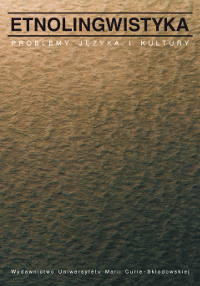Odpowiedź literatury rosyjskiej na pierwszy rozbiór Polski (Przypadek Michaiła N. Murawjowa)
THE RESPONSE OF RUSSIAN LITERATURE TO THE FIRST PARTITIONING OF POLAND. THE CASE OF MIKHAIL MURAVEV
Author(s): Vladimir N. ToporovContributor(s): Irina Kiseleva (Translator), Irina Lappo (Translator)
Subject(s): Language studies, Language and Literature Studies, Studies of Literature, Philology
Published by: Wydawnictwo Naukowe Uniwersytetu Marii Curie-Sklodowskiej
Keywords: MURAVEV'S TRAGEDY 'BOLESLAW'; RUSSIAN-POLISH RELATIONS
Summary/Abstract: The article revives the figure of Mikhail N. Muravev (1757-1807), a writer and social worker, witness to the first partitioning of Poland, a man of noble character, a Russian sympathizing with Poland's tragic fate. Having mentioned the most important facts from Muravev's life against the anti-Polish atmosphere of the Petersburg court, the author presents in detail Muravev's tragedy 'Boleslaw'. The work, preserved only in manuscript, is devoted to the Polish king Boleslaus III the Wrymouth, who at the turn of the 13th century united Poland as a state. A hypothesis is put forward that with this work Muravev tried to react to the partitioning of Poland. An analysis of the work is proposed, followed by the presentation the tragic figure of the main protagonist. Finally, the poem 'Boleslaus, the Polish king' is quoted, in which Muravev synthesizes what he did not manage to include in the unfinished tragedy. Muravev initiated a new kind of attitude of Russians to Poland and its misfortune, a tradition including, among others, Lev Tolstoi's short story 'For what?' (1906), devoted to the fate of a Polish exile.
Journal: Etnolingwistyka. Problemy Języka I Kultury
- Issue Year: 17/2005
- Issue No: 17
- Page Range: 55-68
- Page Count: 14
- Language: Polish

